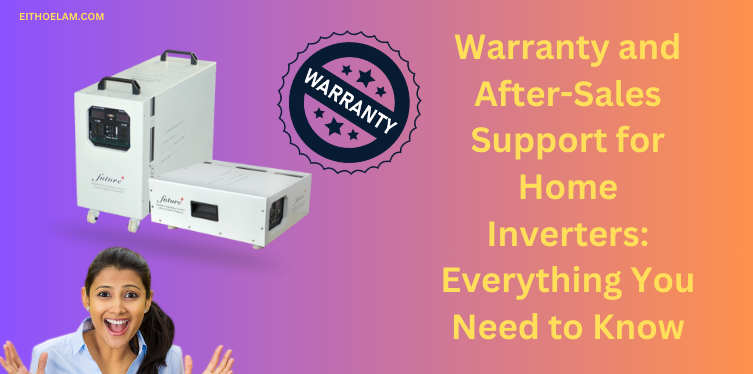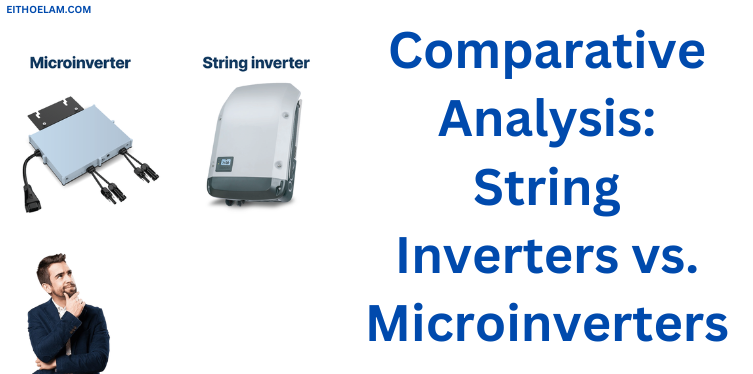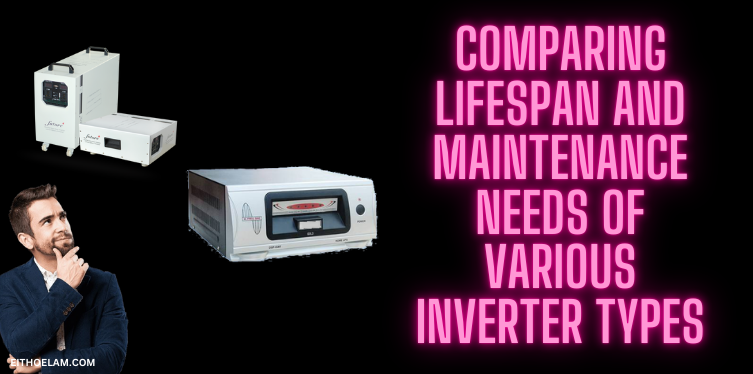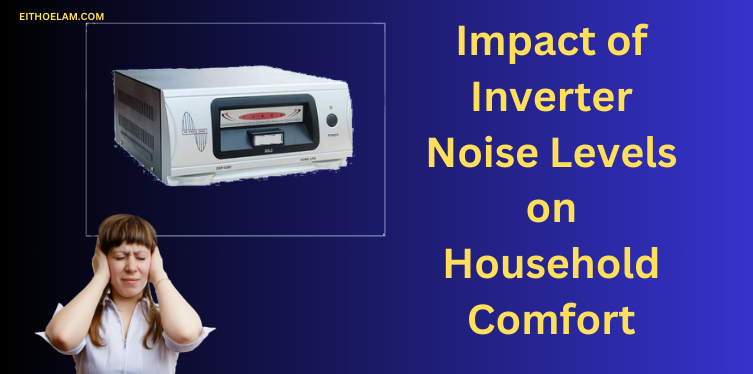Introduction
In a home inverter, you are investing in the uninterruptible power supply that will ensure your appliances are operating smoothly even during a blackout. You may be powering the most crucial equipment or making your family comfortable during the blackout; the bottom line is that you have to make the right choice of an inverter. That is where buying an inverter comes in. This would include understanding warranty and after-sales support so that your investment is always protected, and your home powered.
In this blog post, we shall cover everything you need to know about the warranty and after-sales support for your home inverter. We will look at what constitutes good warranty coverage, the importance of reliable after-sales support, and how to make the most of these services when you need them.
What is the Warranty for Home Inverters?
A warranty is a promise the manufacturer gives that a product will perform as expected for a certain period. In home inverters, it may cover repair or replacement of faulty parts or the unit itself in case of malfunction or defect not due to external causes.
The length and terms of a warranty vary depending on the brand and model of the inverter. Some inverters come with a 2-3 year warranty, while others offer longer coverage, up to 5-10 years. It’s important to thoroughly check the warranty policy when purchasing your inverter, as this can significantly affect your long-term experience.
Major Issues of Warranty for Home Inverters
1. Duration of Warranty
A general inverter warranty lasts 1 to 5 years; high-end ones can be warrantied up to 10 years. Longer warranty periods make you less apprehensive, especially when thinking about an expensive inverter that may be used for years on end.
2. What is Covered Under Warranty?
Typically, the warranty covers:
- Manufacturing defects: If the manufacturing defects prevail in your inverter, a warranty will make the company repair it at no extra cost.
- Component failures: Battery, the inverter’s display and control board come with a warranty against such failure caused by no fault of theirs. This excludes misuse or from external damage.
Identify the parts covered by the warranty. In recent times, inverter manufacturers only cover the unit itself, not the batteries and other components including software for inverters if supplied separately.
3. What is Not Covered?
Generally, the warranty does not cover:
- Damage caused by improper installation:This would lead to damage from poor installation, and the warranty might become null and void if installed contrary to guidelines offered by the manufacturer.
- Natural disasters: Floods, earthquakes, or lightning strikes often are not covered.
- Wear and tear: If the product has a battery or any consumable item, then the warranty will not be available after the usage period.
4. Claiming the Warranty
Contact is usually made with the maker’s customer care or the maker authorized service station to activate one’s warranty. Sometimes this process requires proof of the transaction, a description of what is wrong, photographs and videos showing the faulty conditions.
One needs to read the fine print of the warranty policy and is very much aware of the process of repairing if one’s inverter happens to break.
Why is After-Sales Support Important?
Although the warranty for your inverter ensures that any problem will be fixed or replaced, after-sales support is very equally important. This includes installation support to solution of problems whereby solutions are provided even after the lapse of the warrant.
Good after-sales support is quite important so that your inverter keeps on working fine throughout its lifetime.
Key Aspects of After-Sales Support for Home Inverters
1. Installation Services
Most inverter manufacturers provide installation as part of their after-sales service. Installation by professionals will guarantee that the unit is installed as recommended by the manufacturer; hence, the chances of failure as a result of bad installation will be low.
You also get some free to install but others will cost you some installations. As much as it is within your capacities, you may opt to go for professional installation and see to it that they perfectly meet all your needs.
2. Troubleshooting and Technical Support
Home inverters are rather complex systems, and surely problems will arise sometimes. Whether it is a software bug or a hardware malfunction, access to a reliable technical support team will save you a lot of time and effort. It is very helpful when problems arise after the warranty has ended.
Reliable after-sales support ensures that answers to all your questions are received, explanations for error messages are given, and solutions for issues such as low battery performance, malfunctioning inverters, or any system malfunction that would affect power output.
3. Regular Maintenance Services
Inverters require scheduled servicing, especially if they have been in constant use. Some manufacturers make provision for scheduled maintenance: a technician checks the inverter for potential problems and cleans the system, updating its software as necessary.
Such maintenance would ensure that your inverter runs for long without repairs being very costly.
Also Read: Comparative Analysis: String Inverters vs. Microinverters
4. Repair and Replacement Services
In case your inverter breaks down outside of the warranty period, the repair and replacement services come in handy. Many inverter manufacturers offer paid repairs even after the warranty, ensuring that your inverter continues to function.
Sometimes, even the manufacturer can offer some discount on replacement units or even replacement parts if the customer has registered the product with them. This can be useful when the price of repair seems to exceed the value of the inverter.
How to Choose a Good Warranty and After-Sales Support Service
When choosing an inverter for home, the attention should not be to only technical specifications or price but also on the warranty and after-sales support. Here are a few tips to ensure you are getting the best support:
1. Read Customer Reviews
Review whether any other customer has complains about his warranty claim and even other after-sales services; anything satisfactory on that would give the customer an assured confidence towards their brand.
2. Check Warranty Terms Thoroughly
I always ask about the terms and conditions of the warranty. The exclusion details of the length are also covered. A warranty policy should be transparent so that one can easily depend on a manufacturer.
3. Look for Authorized Service Centers
Determine whether there are service centers available in the place. Ease of service and maintenance access is also an important factor. It should be accessible to call the support team via the phone, email, or live chat.
4. Assess the Reputation of the Manufacturer
A well-established brand with good reputation for customer service will surely have an excellent after-sales support system. Choose producers who are known to manufacture quality products and to stand behind their customers.
5. Consider Extended Warranty Options
Some manufacturers of inverters give extended warranty options. This way, you can acquire additional protection for your inverter, which extends the period of warranty. You’ll have more peace of mind if something does go wrong after the warranty has ended.
Conclusion
A warranty and after-sales support is an essential part of the whole experience of buying a home inverter. A good warranty will ensure that you are covered in case of defects or faults, while after-sales support will assist in installation, troubleshooting, and maintenance for the long life of your inverter.
Before buying an inverter, you need to read the warranty terms very carefully. Then see how well they are assisting after-sales support services within that brand. The chances of saving money with any brand by purchasing an inverter are negligible when compared with a reliable manufacturer having the best after-sales warranty terms and amazing customer care service.
FAQ’s
Q1: How long does the warranty last for home inverters?
The warranty for home inverters typically lasts between 1 to 5 years, though some high-end models offer longer coverage. Always check the specific terms for your inverter model.
Q2: Does the warranty cover battery replacement?
Battery warranties vary by manufacturer. Some inverters cover battery replacements during the warranty period, while others may offer separate warranties for batteries.
Q3: What should I do if my inverter stops working after the warranty period?
If your inverter stops working after the warranty period, contact the manufacturer’s after-sales support for troubleshooting or repair options. Some brands offer paid repair services.
Q4: Is professional installation necessary for my inverter?
While not always required, professional installation is highly recommended to ensure your inverter is set up correctly and functions efficiently.
Q5: Can I extend the warranty for my home inverter?
Some manufacturers offer extended warranty options for an additional fee. It’s a good idea to inquire about this when purchasing your inverter.
Disclaimer: This research utilizes artificial intelligence (AI) to gather insights and support analysis on the topic.






Leave a Comment